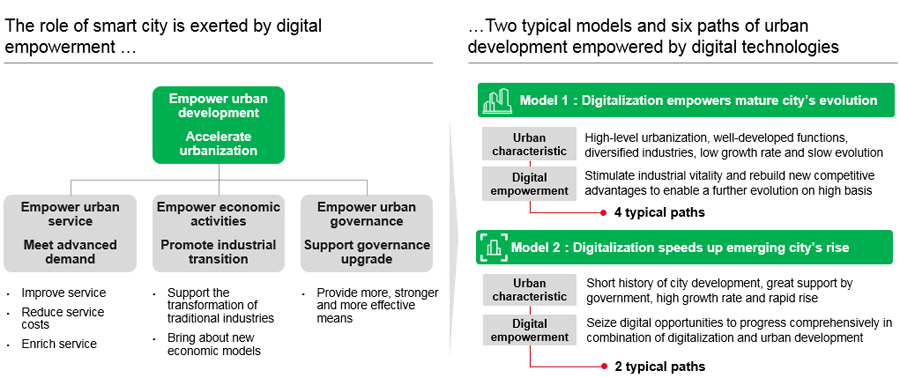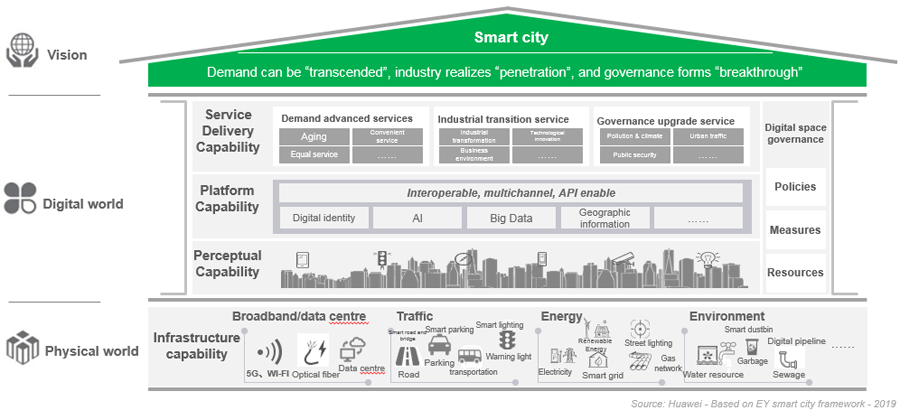The Key to Tomorrow’s Smart Cities Economic Vitality and Systematic Planning
Since the concept of smart city was set up 10 years ago, its importance has been generally recognized. There are more than 1,000 cities around the world that have started or are building smart cities, the promotion of smart city is in full swing. But what we have witnessed is that the constructions of smart cities are plagued by the phenomena of “many constructions but limited effect, many attempts but less integration, many pilot projects but less massive production”. Are the issues of immature technology, premature development stage, or inappropriate development model? What is the key to the future development of smart cities?
Here come the Huawei’s profound thinking and systematic positions.
Through the analysis of urban development process, it is found that economy and systematicness are key to urban development. At each stage of urban development, it is the general law that roles about economy and systematicness of new technologies and other new things are reflected as stages coming from functions, to performance, and then to effectiveness. Smart cities are undergoing the same development process and have gone through performance verification in key areas and are entering the performance realization stage. The economy and systematicness of smart cities are shifting from spontaneity to self-consciousness. Since the key to the future of smart cities lies in economic vitality and systematic planning, it is necessary to strengthen our confidence and accelerate the development of smart cities by driving the economy in a systematic way.
Regarding economy vitality, 2 typical models and 6 paths of urban development empowered by digitalization:

Taking 20 typical cities in our analysis, we have sorted out the key issues concerned by 12 cities, their typical practices and digital initiatives, and analyzed the effectiveness of digital initiatives. Through the analysis of 6 typical city cases and several smart city projects, it is found that the typical models and paths of smart city economy, including two typical models and six paths of digital technology empowering urban development, two typical models of smart city services forming the new economy, and four typical models for promoting smart city projects launching. Thereby, we propose six key capabilities about the smart city’s systematicness, on top of that, point out four critical initiatives to speed up the development of smart city by accelerating the economy through the systematicness as our reference.
Systematic planning framework of smart city enables shifting from "fractional smart " to "overall intelligence:

